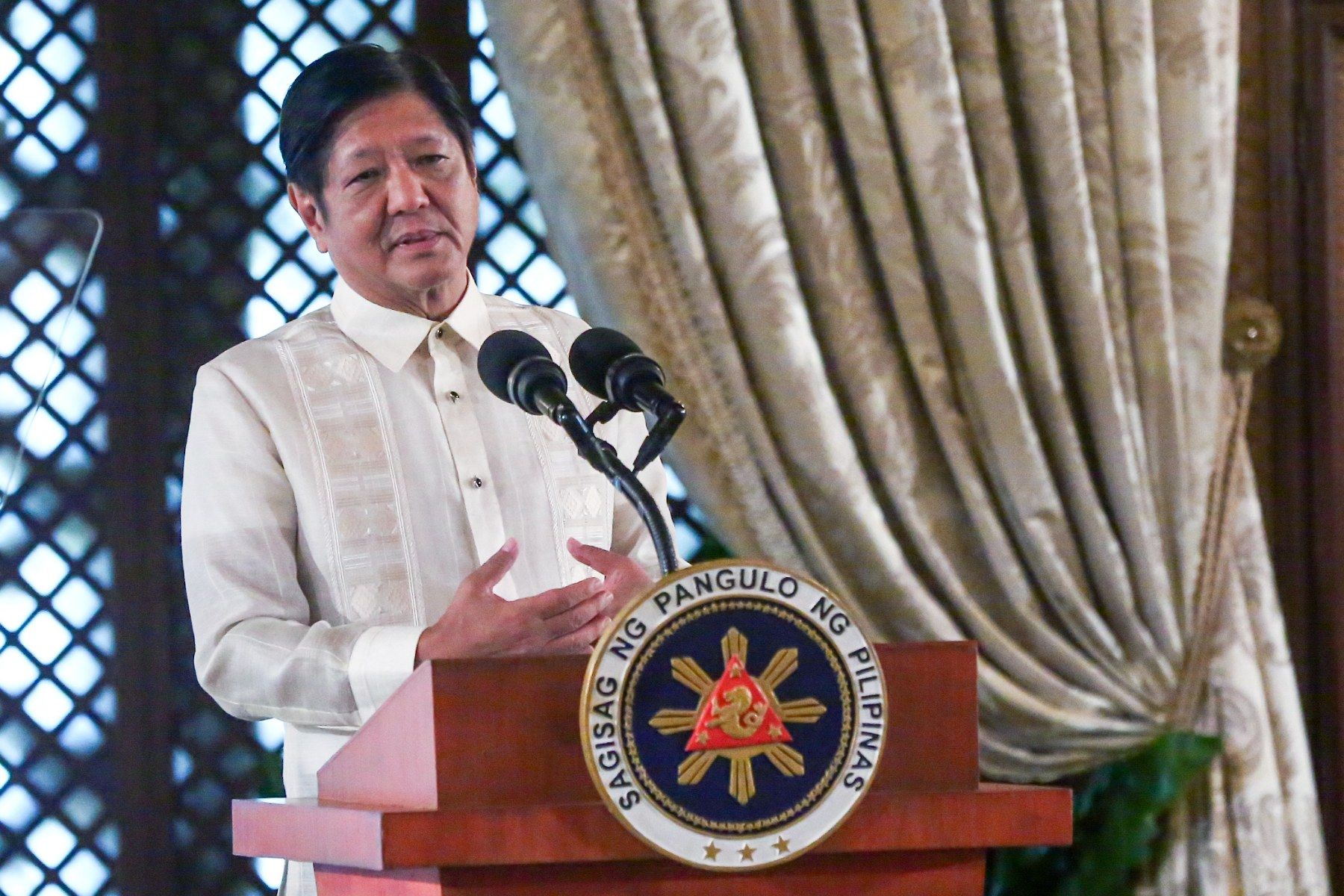Marcos: Stop pretending climate change isn't real
At A Glance
- According to Marcos rich countries like China and the US should help the poor and developing ones weather the effects of climate change, especially since they were the ones causing the most damage to the environment.
President Marcos has urged the public to not belittle the impact of climate change, saying the Philippines is already experiencing its effects.

Marcos said this in a taped message for a climate change summit in Pasay City on Wednesday evening, Sept. 28.
In his message, the President said people should start taking climate change more seriously as it is not a problem that will resolve itself.
“Huwag tayong nagkukunwari na hindi nangyayari ito at basta’t mawawala na lang itong problemang ito (Let us not pretend that it is not happening and the problem will just disappear),” he said.
“Harapin natin, pag-usapan na natin, pag-aralan na natin. Ang mga anak natin, mga apo natin, sila, ang mag-aani dito sa magandang trabaho na gagawin natin (Let us face it, talk about it, study it. Our children and grandchildren will be the ones reaping the fruits of our labor),” he added.
According to Marcos, climate change is more serious than the recent Covid-19 pandemic.
“We will adapt already to the new reality na gamit na ng masyado yung tinatawag na ‘new normal’ dito sa pandemic (and we have overused the term ‘new normal’ for the pandemic). Well, it applies also when it comes to climate change,” he said.
“This is the new normal for our climate. This is what we have to face. Let’s adapt to that new normal. In the same way that we are adapting to the pandemic, this climate change is a greater risk to humanity than this pandemic ever will be,” he added.
Big challenge
President Marcos said climate change is a big challenge for the Philippines and the government must change its way of handling it.
“Gawan natin ang paraan para hindi malubha ang maging epekto sa ating mga tao, sa ating mga kababayan (Let us do something about it so that it won’t gravely affect the people),” he said.
“Napakalaking hamon ito para sa atin, hindi lamang sa Pilipinas, kung hindi sa lahat ng buong mundo, kung paano natin haharapin ngayon itong pagsubok na ito (Facing this issue is a big challenge for all countries, not just the Philippines),” he added.
The Chief Executive said the changing climate has caused an increase of one degree Celsius in the temperature and a 10-percent decrease in the country’s yearly rice yield.
With this, he urged the government’s researchers to find ways to adapt to the changing climate.
“Pag-aaralan ninyo ng mabuti, yung bagong varieties na mas matibay na pwedeng gamitin. Kahit na uminit ng konti, kahit medyo tuyot ng konti ang lupa, eh ito ay nabubuhay pa rin (Let us study new varieties that are more resilient that. Those that we can use even if it heats up or the land dries up),” Marcos said.
He likewise suggested relocating the people who are living near the shores and establishing a “no-build zone” to prevent loss of life and property when a storm comes in.
In the same event, Executive Secretary Lucas Bersamin said the Philippines is the most vulnerable to the effects of climate change due to its location.
“The Philippines stands at the forefront of climate vulnerability. Our archipelagic nature, while a source of immense beauty and diversity, also exposes us to the increasing ferocity of typhoons, the encroachment of rising seas, and the unpredictable patterns of extreme weather,” he said.
With this, Bersamin said the Philippines will explore cutting-edge technologies that will revolutionize sectors vital to the nation’s progress.
“From resilient housing and sustainable urban development to renewable energy solutions and climate-smart agriculture, the innovations presented here today offer a glimpse into the Bagong Pilipinas we aspire to create,” he said.
Holding accountable
Meanwhile, President Marcos said the Philippines is suffering because of the rich countries that emit the most carbon dioxide. Carbon dioxide emissions stem from the burning of fossil fuels.
“Tayo dito sa Pilipinas, ang buga natin ng carbon, pag ikumpara mo sa buong mundo, wala pa tayo sa 1.3 percent. Ngunit, tayo naman ay isa sa pinakalimitado dito sa mga pangyayari sa climate change (We in the Philippines, our contribution to carbon emissions is only 1.3 percent but we are one of the most limited when it comes to climate change),” he lamented.
“Bakit kami pa ang nagbabayad para sa buga ng ginawa ng mga mayayaman ng bansa? Ang pinakauna ngayon sa buong mundo ay ang dalawang pinakamalaking ekonomiya, China at saka United States (Why are we the ones suffering for the damage caused by rich countries? The ones on top of the list are the biggest economies— China and the United States),” he said.
According to Marcos rich countries like China and the US should help the poor and developing ones weather the effects of climate change, especially since they were the ones causing the most damage to the environment.
“Kayo ang gumawa nitong problemang ito. Yumaman na kayo sa inyong ginawa. Dapat naman tumulong kayo dito sa amin ng maliliit (You caused this problem. You became rich because of it. You should the developing countries),” he said.
“Kung sino man ang pinakakinabang at sino man ang pinakamalakas na mag-pollute sa buong mundo, sila dapat muna ang tumulong doon sa maliliit para maging pantay naman (Whoever benefited the most, whoever caused the most pollution should be the first to help the small countries so we would be equal),” he added.